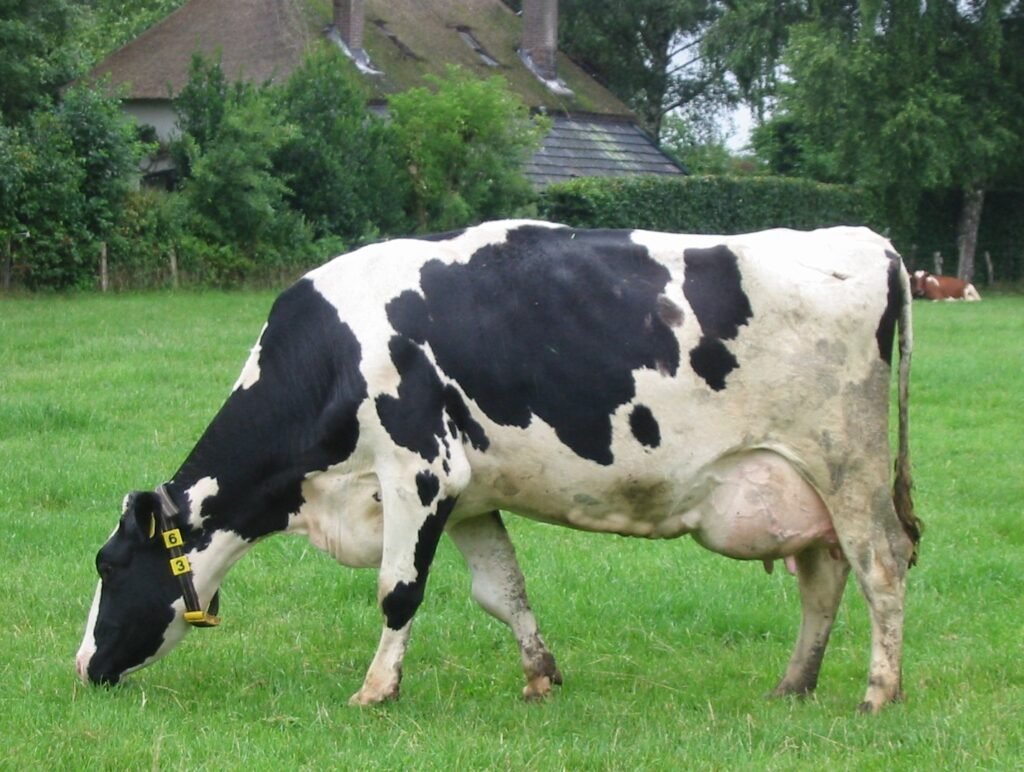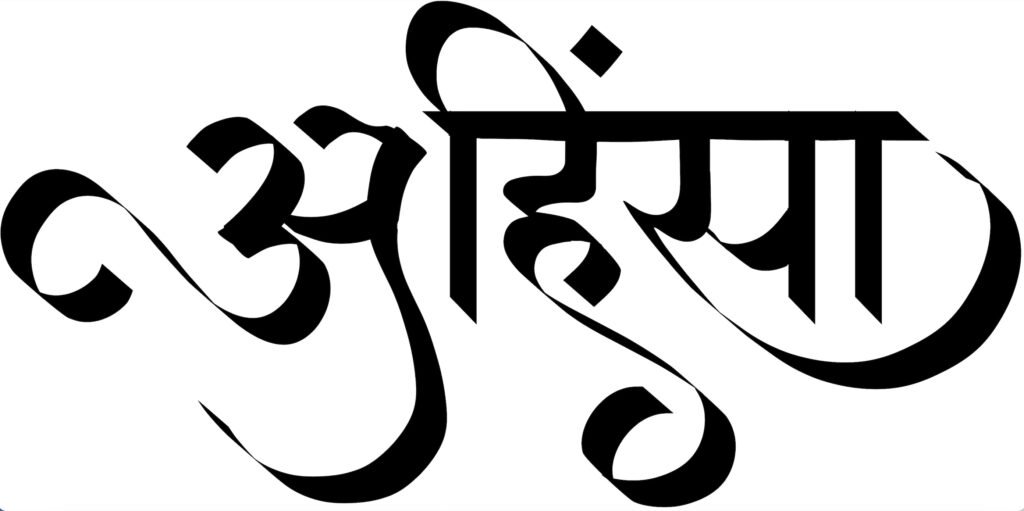In the rich tapestry of Jainism, Ahimsa rises as a towering beacon, illuminating the path of non-violence and reverence for life in its myriad forms, from the grandest beings to the tiniest microorganisms. This profound ethical cornerstone is not just a facet but a fundamental pillar of Jain philosophy, intricately woven into its fabric to guide thoughts, actions, and beliefs and leads to the principle of Vegetarianism

Ahimsa & The Earliest Manifestation of Animal Rights
Jainism’s embrace of Ahimsa extends beyond mere rhetoric; it manifests as a profound commitment to abstain from causing harm or violence to any living entity. This ethos has led Jainism to stand as a pioneering force, heralding the dawn of vegetarianism long before it became a mainstream ethical choice. Indeed, Jainism can be regarded as the primordial champion of animal rights, marking a conscious departure from meat consumption millennia’s ago.
However, the journey towards ethical dietary choices in Jainism takes a contemplative turn when it comes to dairy consumption. Unlike contemporary movements advocating stringent veganism, Jains have historically embraced lacto products while upholding a strict non-violent ethos. This apparent paradox invites us to delve deeper into the philosophical underpinnings that reconcile the reverence for all life with the consumption of dairy.

Vegetarianism and Lacto Consumption
In this discourse, we embark on a philosophical quest to unravel the intricate layers of Jain thought, exploring the delicate balance between Ahimsa and dietary practices. Through this exploration, we seek not just answers but a deeper understanding of the nuanced interplay between ethical principles and pragmatic choices in the pursuit of a harmonious existence with all beings. This discussion will delve into the below two facets of lacto consumption:
- Is drinking milk an animal product in sync with vegetarianism
- Should Jains be consuming fermented lacto products as they are infested with innumerable microorganisms?
Vegetarianism in Jainism stems from the concept of Ahimsa, the jewel of Jain philosophy, and beckons us to contemplate its essence deeply. What is the true nature of Ahimsa? To unravel this enigma is to unlock the essence of our quest.
Ahimsa – The Seed Thought
Diving into the wisdom of Jina, we encounter a profound insight:
Intent to kill is Himsa, and intent not to kill is Ahimsa. This is irrespective of whether anyone lives or dies
Jina, The Mahavira

This dictum transcends the mere act of living or dying; it delves into the realm of intention and consciousness. In the tapestry of Ahimsa, an action finds itself adorned with the label of Himsa (violence) only when it harbors the deliberate intent to harm a sentient being.
This philosophical axiom draws a clear line between conscious choices and inadvertent consequences. It illuminates the path of ethical discernment, urging us to navigate our actions with mindfulness and compassion. In the context of our inquiry, this understanding serves as a guiding light, illuminating the intricate interplay between Ahimsa and the nuances of dietary choices within Jainism.
The primary reason that emerges from the above understanding is that as long as an animal product is not obtained by killing the creature, it comes under the umbrella of edible under Jainism. This understanding becomes all the more profound with the choices Jains make in choosing the vegetation they should consume.
Vegetarianism – The Ahimsic Way of Life
In the realm of Jain dietary ethos, vegetarianism transcends a mere abstention from meat; it embodies a profound conscientiousness towards the intricate web of life encompassing plant ecosystems. When we delve into the act of uprooting plants for sustenance, we are confronted with a complex reality: the cessation of not only plant life but also the interconnected microorganisms that rely on it for their existence. This includes essential symbiotic relationships like those with Rhizobia bacteria, vital contributors to soil fertility and plant health. Jain teachings discern such actions as akin to himsa or violence, for they embody a deliberate disruption and harm inflicted upon living entities within these ecosystems. Thus, vegetarianism in Jainism is not merely a dietary choice but a holistic commitment to honoring the sanctity of life in all its interconnected manifestations.
Ahimsa and Lacto Consumption
Building upon the preceding logic, we discern why Jains opt for milk consumption while refraining from root vegetation. The former aligns with Ahimsa principles as it is obtained without causing harm to the host creature, unlike the latter which necessitates the termination of the host’s life.
Now, let’s ponder over fermented lacto products such as curd and cheese. These products epitomize thriving colonies of microorganisms. The question arises: does the consumption of these lacto products align with the Jaina principle of Ahimsa?
Ahimsa – The Art of Harmonious Existence
This contrasting end of the ethical spectrum regarding the consumption of fermented lacto products offers a fascinating divergence in our philosophical exploration. These products, exemplified by curd and others, serve as hosts to a vibrant microcosm of organisms essential for fermentation processes. Unlike the uprooting of plants, which disrupts entire ecosystems, the consumption of lacto products does not entail the termination of these microorganisms. Instead, they enter a symbiotic dance with our bodies, continuing their life cycles and bestowing upon us invaluable health benefits.
This symbiotic relationship unveils a harmonious coexistence, where our bodies become sanctuaries for these microorganisms to flourish. Through their presence, our immune systems are fortified, and our overall well-being is enhanced. In this intricate dance of life, the consumption of lacto products emerges as a testament to the interconnectedness of all living beings, showcasing a reciprocal nourishment where both parties thrive in mutual symbiosis.
This contemplation not only enriches our understanding of dietary choices within Jainism but also invites us to ponder the broader implications of our interactions with the living world. It prompts us to reflect on the intricate balances of life and the profound interconnectedness that binds us all in a tapestry of existence.
Conclusion
In essence, the dietary principles of Jainism encapsulate a profound ethos that transcends mere abstention; they embody a commitment to nurturing life in its manifold expressions. Delving into the essence of Ahimsa unravels a profound understanding of our interconnectedness within the intricate web of life. This journey of comprehension not only sheds light on the impact of our choices but also serves as a guiding beacon towards embracing more ethical and sustainable practices. Thus, Jain philosophy beckons us to tread a path of mindful harmony, where our actions resonate with the rhythms of life, fostering a world where compassion and sustainability intertwine in a harmonious dance of existence.
